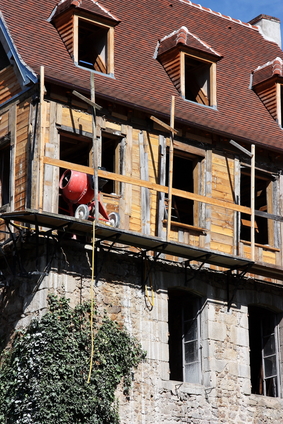Special to the Financial Independence Hub
With the spring homebuying season in full swing, real estate is a hot topic of conversation and many Canadian homeowners may be thinking of making a move.
A recent TD survey of existing homeowners and those planning to own a home reveals that renovation is also on the minds of many Canadians. In fact, 56% of respondents have considered, or would consider, renovating their current home or buying a fixer-upper rather than buying a move-in-ready one.
Many people find themselves in the situation where they love their neighbourhood but their current home doesn’t have enough space or it is in need of upgrades. These can be motivating factors for many to choose between renovating and relocating; but given the cost and stress associated with moving, home renovation proves to be a popular choice amongst Canadians.
But renovation does not come worry free. When considering the choice to renovate, 61 per cent of survey respondents say that cost is their biggest concern.
Plan ahead, including finances
To help alleviate the stress that can often come along with renovations, it’s important to plan ahead and have a financial approach in place. Before you embark on any home renovation project, take the time to seek advice and develop a well-rounded plan. Home renovation projects, whether large or small, are often going to come with both surprises and challenges. But there are simple steps you can take to help reduce the stress that can often accompany a renovation project.
Doing research ahead of hiring a contractor can bring peace of mind with your hiring decision. Make sure to call for references, get several bids and do the due diligence on your preferred contractor’s track record before you agree to the job. When evaluating competing bids, ask for a breakdown of labour costs versus material costs to help you decide which contractor’s estimate best fits your budget.
Factor in an extra 15% in costs
In terms of paying for your renovation, having financial flexibility is key to reducing budget worries. For example, the TD Home Equity FlexLine provides payment flexibility, convenient access to cash and a low-cost way to borrow against the existing equity in your home. You should also consider factoring in an extra 10 to 15 per cent on top of your anticipated costs to help keep you from running over-budget and give you a buffer in case something unexpected arises.
For anyone planning to undergo home renovation, here are three key tips to help make the process a little smoother and a bit more affordable:
- Plan ahead – having a financial approach in place will help with reducing stress and keeping you from running over-budget
- Consider different financing options – think about using your TFSA or a home equity loan to help with financing your project
- Have a safety net in place – put some extra money aside in case one element of your renovation ends up costing more than expected
Before you begin any renovation project, talk to a financial advisor and determine what options are best for you to turn your current home into the home of your dreams.
For more information, tools and resources on home ownership, click here.

Pat Giles is Associate Vice President, Real Estate Secured Lending at TD Bank.


